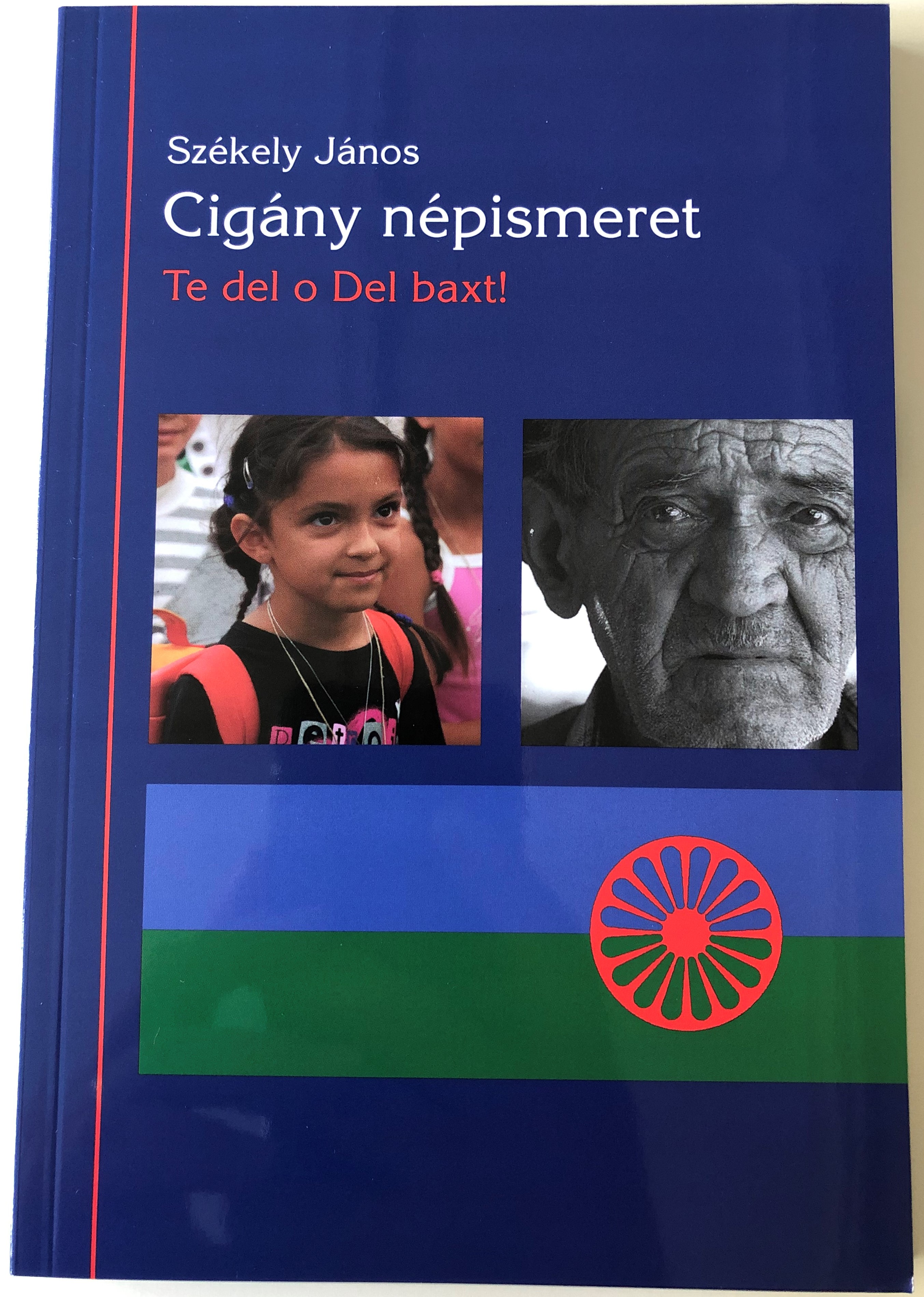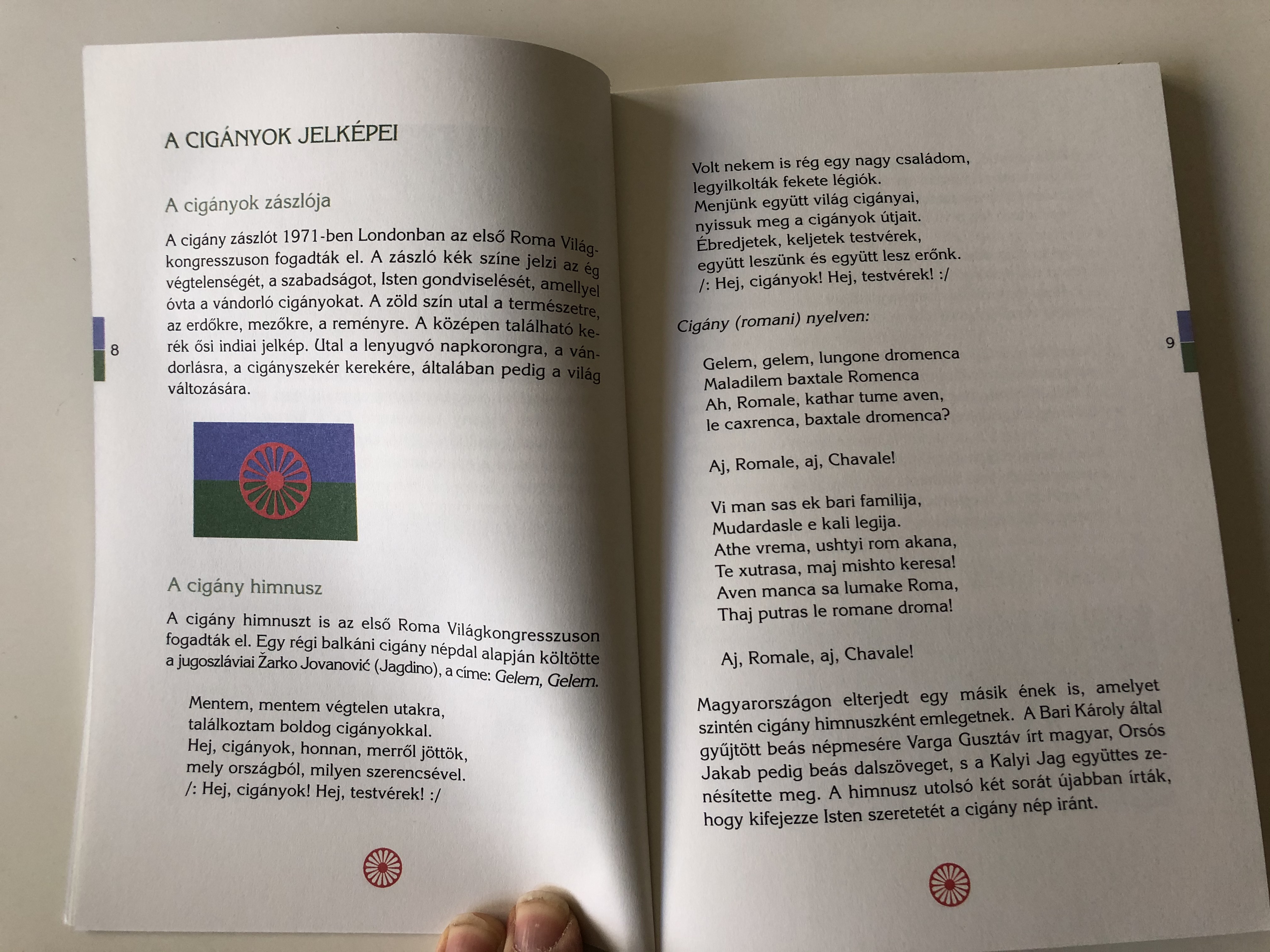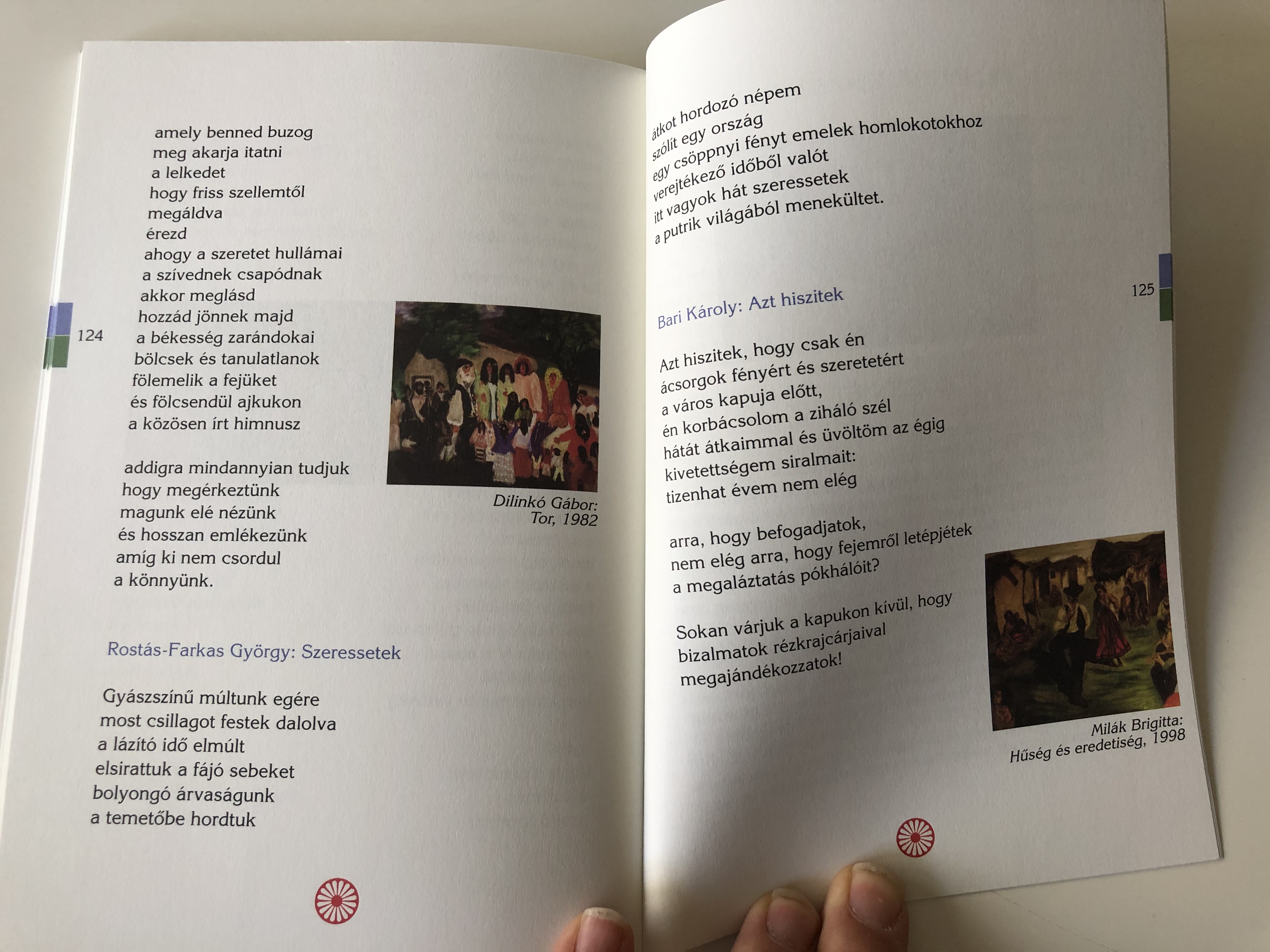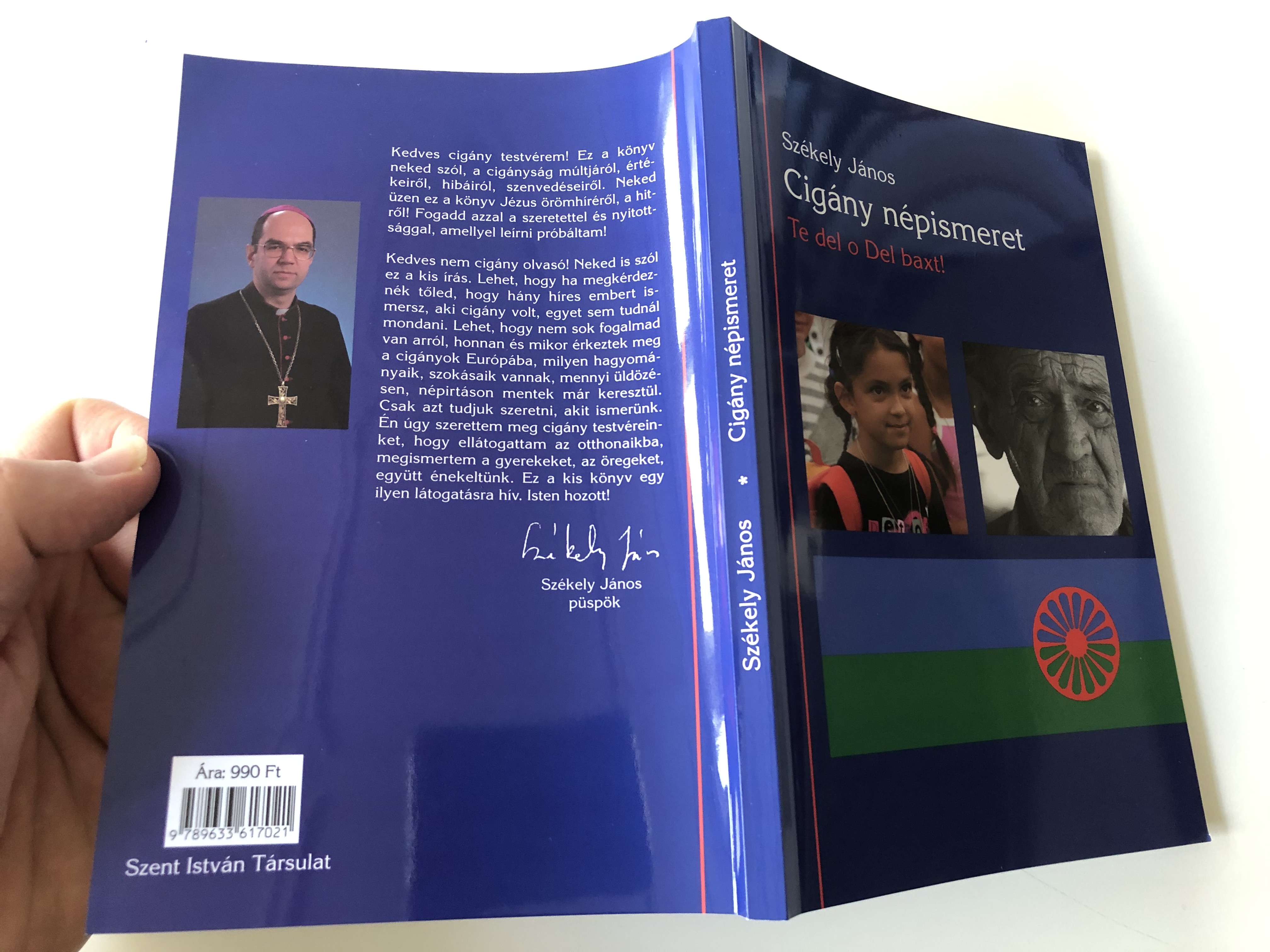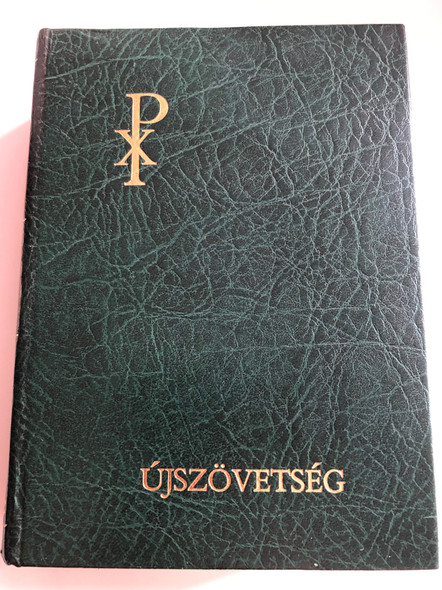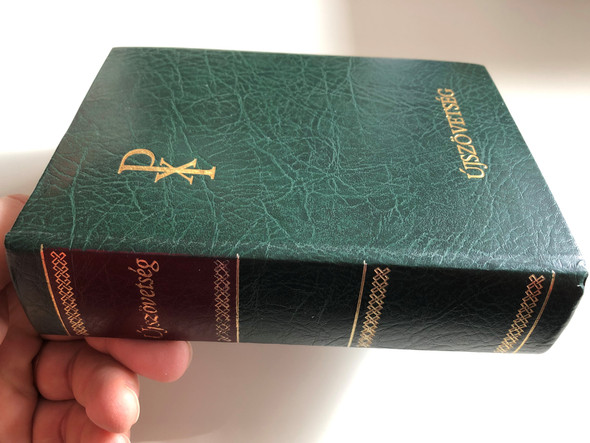Description
Cigány Népismeret | Te del o Del baxt!
UPC Code: 9789633617021
Overview | Áttekintés
English: Cigány Népismeret by Székely János, also known as Te del o Del baxt!, is an insightful and enriching paperback edition that explores the rich cultural and ethnographic heritage of the Romani people. Published by Szent István Társulat in 2017, this book provides readers with a deep understanding of Romani traditions, history, and their unique way of life. It’s an important resource for anyone interested in Romani studies or seeking to learn more about the cultural diversity within Hungary and beyond. The book is written in Hungarian, offering a detailed look into the world of the Romani community.
Hungarian: A Cigány Népismeret Székely János műve, más néven Te del o Del baxt!, egy informatív és gazdagító keménytáblás kiadás, amely a romani nép gazdag kulturális és etnográfiai örökségét tárja fel. A Szent István Társulat 2017-es kiadása mélyebb betekintést ad a romani hagyományokba, történelembe és az életmódjuk egyedülálló aspektusaiba. Ez a könyv fontos forrás mindazok számára, akik érdeklődnek a romani tanulmányok iránt, vagy többet szeretnének megtudni a magyarországi és azon túli kulturális sokszínűségről. A könyv magyar nyelven íródott, és részletes képet ad a romani közösség világáról.
Product Features | Termékelőnyök
English:
- Format: Paperback
- Pages: 127
- Language: Hungarian
- Publisher: Szent István Társulat
- ISBN: 9789633617021 / 978-9633617021
- ISBN-10: 9633617022
- Publication Year: 2017
Hungarian:
- Kiadás típusa: Puhatáblás
- Oldalszám: 127
- Nyelv: Magyar
- Kiadó: Szent István Társulat
- ISBN: 9789633617021 / 978-9633617021
- ISBN-10: 9633617022
- Megjelenés éve: 2017
Interesting Facts | Érdekes tények
English:
- Cigány Népismeret offers a thorough exploration of Romani cultural practices, focusing on language, traditions, music, and social structure.
- Székely János is renowned for his deep research into Romani ethnography, and his work has been instrumental in preserving the cultural heritage of the Romani community.
- The title, Te del o Del baxt!, which translates to "May you have good luck!", is a traditional Romani greeting that emphasizes the theme of fortune and well-wishing in Romani culture.
- This book is a key reference for anyone studying the Romani people, offering insight into their complex history, customs, and contribution to Hungarian society.
Hungarian:
- A Cigány Népismeret alaposan feltárja a romani kulturális gyakorlatokat, különös figyelmet szentelve a nyelvre, hagyományokra, zenére és társadalmi struktúrára.
- Székely János neves kutatója a romani etnográfiának, munkássága kulcsszerepet játszott a romani közösség kulturális örökségének megőrzésében.
- A cím, Te del o Del baxt!, amely „Legyen jó szerencséd!” jelentéssel bír, egy hagyományos romani üdvözlés, amely a szerencse és jókívánságok fontosságát hangsúlyozza a romani kultúrában.
- Ez a könyv kulcsfontosságú forrás mindazok számára, akik a romani népet tanulmányozzák, betekintést nyújtva annak összetett történetébe, szokásaiba és hozzájárulásába a magyar társadalomhoz.
Publishers | Kiadók
English:
- Publisher Name: Szent István Társulat
- Publication Year: 2017
Hungarian:
- Kiadó neve: Szent István Társulat
- Megjelenés éve: 2017
We value your feedback! Share your experience with this product to help others make informed decisions. Your review is important to us!
Hungarian: Fontos számunkra a véleménye! Ossza meg tapasztalatait ezzel a termékkel kapcsolatban, hogy mások is megalapozott döntéseket hozhassanak. Az Ön véleménye számít nekünk!
Hashtags | Hashtagek
English:
#CigányNépismeret #RomaniCulture #RomaniTraditions #Ethnography #RomaniHistory #RomaniStudies #CulturalDiversity #SzentIstvánTársulat #HungarianBooks #BuyOnline #EthnographicBooks #TeDeloDelBaxt #CulturalHeritage #RomaniPeople #HungarianLiterature
Hungarian:
#CigányNépismeret #RomaniKultúra #RomaniHagyományok #Etnográfia #RomaniTörténelem #RomaniTanulmányok #KulturálisSokszínűség #SzentIstvánTársulat #MagyarKönyvek #VásárlásOnline #EtnográfiaiKönyvek #TeDeloDelBaxt #KulturálisÖrökség #RomaniNép #MagyarIrodalom
